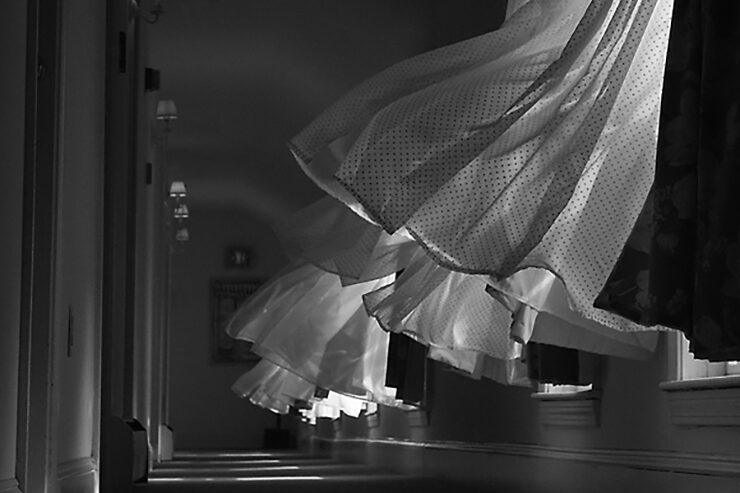The Philadelphia Society, a longtime conservative discussion forum, has scheduled for Jan. 16 a “virtual debate” between Christopher Owen and Glenn Ellmers, both of whom have recently published biographies, one on Willmoore Kendall and the other on Harry Jaffa, respectively. The featured question of the debate is this: Which is the more important founding document for this country, the Declaration of Independence or the Constitution?
Presumably, Ellmers will be defending the Declaration and the views of Harry Jaffa, his teacher and the subject of his biographical study, while Owen will take up the cudgels for the populist Kendall, who viewed the Declaration less sympathetically than Jaffa. Both biographers have done serious scholarship on their chosen subjects. If I have any complaints about the planned festivities, they are certainly not based on a low opinion of the participants.
Nor do I agree with one of my friends who considers this “philosophical” debate glaringly inappropriate, especially when our entire society stands “on the brink of disaster.” Why should we care about these dated discussion topics, I was asked, when the left and its media and educational allies, in conjunction with the surveillance state, are destroying our freedoms and weaponizing the government against us? And these attacks are occurring with only ineffective resistance while similar political, social, and cultural developments are taking place all across what Fox News still anachronistically describes as “the free world.”
Still, this dire situation does not make reflecting aloud about our founding documents a waste of time. What renders this virtual debate less than significant, however, is the context in which it will be unfolding. It is the Philadelphia Society gerontocracy that is sponsoring this exchange, and like the onetime Soviet Praesidium, the directors have done everything possible for years to keep “undesirable” views from surfacing. If there is anything that seems fossilized, it is the auspices under which this discussion will proceed. Although founded by Frank Meyer in 1964 as a center for vigorous debate on the intellectual right, the Philadelphia Society now exudes the freshness of an ancient Egyptian tomb.
The scheduled discussion should most certainly take place, but it would be a good idea to include as participants younger conservatives—including those who might question the relevance of the topic. This hypothetical discussion might also embrace (Heaven forfend!) paleoconservatives who would bring to bear their own Burkean, Aristotelian, or right-wing historicist perspectives. In other words, the Philadelphia Society and the Conservatism Inc. that it serves should let in some fresh air.
Yes, I know these sponsors can create their own tolerable dissent by inviting younger conservative media celebrities to make the appropriate, prescribed noises. They could also invite as participants the employees of Republican foundations who will say exactly what the big guys want. But what is needed are not predictable pieties but open, no-holds-barred discussions, of the kind that used to transpire long ago at National Review and during the early years of the Philadelphia Society. Of course, I’m voicing a forlorn hope that I don’t expect to be realized, as long as the tomb managers remain in charge.
Philosophical discussions on the right are valuable, if only to know where the sides are coming from ideologically. I find only very slight differences between political positions taken by Chronicles and those that I encounter on American Greatness and American Spectator. Nor do I perceive much of a difference between my own political stands and those of Victor Davis Hanson, Conrad Black, and Roger Kimball, all of whom I happily quote in my commentaries. But as soon as the discussion turns to historical or theoretical questions, the differences become glaringly obvious.
Unlike the positions taken by these worthy gentlemen, my views about Lincoln’s military invasion of the South and the subsequent Reconstruction, about Wilson’s declaration of war against the Central Powers in 1917, and about the civil rights movement in general are far more critical than theirs. I am also more critical than they are about the course of “liberal democracy,” since that term came into use in the last century. For me, it is a modern degenerate version of the constitutional republicanism that the founding fathers bequeathed to posterity.
The right should be debating these differences—the way it used to. Unfortunately, this won’t happen at the Philadelphia Society—not as long as the sponsors are guarding the tomb. Please note that I’m not suggesting such academic differences preclude working together in the current day’s political struggle against the woke totalitarian nightmare descending on this country. That said, differing historical and philosophical discrepancies should be discussed without reservations, even among political allies. My exchanges with Michael Anton on American Greatness exemplify this need for the airing of philosophical differences. Such discussions and debates should not create bitterness or become an excuse for unwarranted mockery. Rather, they should allow for vigorous analysis of ideas on matters that properly engage philosophical conservatives.
Let’s open the window at the fossilized institutions of the conservative establishment and let in the breeze!

Leave a Reply